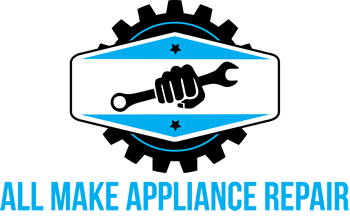Electrolux & GE
Electrolux May Swallow Bitter Pill to Get GE Appliance Deal
As Electrolux AB fights in court to buy General Electric Co. assets, the Swedish home appliance maker may prefer to sell brands than factories if it tries to reach a settlement to salvage the $3.3 billion deal before the judge’s verdict.
To satisfy U.S. Department of Justice opposition to the agreement, a sale of manufacturing sites “would be a commercial nightmare,” said Handelsbanken analyst Karri Rinta. Selling GE oven brands makes more sense although it might be “insufficient.”
The Justice Department argues that Electrolux’s planned takeover of GE’s appliance business would leave some buyers only two options for their household cooking goods purchases: Electrolux and Whirlpool Corp. Electrolux CEO Keith McLoughlin is counting on the acquisition unveiled more than a year ago to rival Whirlpool for the No. 1 spot in the U.S. appliance market and extract annual cost synergies of some $350 million.
In Court
As the two sides headed to a Washington federal court where the trial started Monday, analysts said it’s likely that a verdict will decide the fate of the deal, though the Swedish company may still propose remedies to assuage antitrust concerns.
The sale of brands like GE’s low-end Hotpoint and more expensive Monogram lines makes “more sense” for both Electrolux and prospective buyers than factory sales, according to Rinta. Factories often make products for different brands and types of consumers, complicating their disposal.
The deal might be “diluted significantly or, at worst, it could fail completely,” he said. “It’s now looking increasingly unlikely that there will be a settlement before the verdict.”
The government has argued in court papers that the deal will lead to a duopoly in the supply of major cooking appliances because the “Big Three” suppliers — GE, Electrolux and Whirlpool — have a combined 90 percent of the market for so-called contract buyers like home builders and property managers.
Electrolux’s position is that consumers aren’t at risk because the appliance market is characterized by constant price pressure, Danske Bank analyst Björn Enarson said by phone.
Outlook Unclear
“On paper, the DOJ has a very strong case, but in reality Electrolux has a strong case for the argument that consumers won’t suffer,” he said. “The visibility on how the judge will rule is zero.”
Joe Sims, a lawyer representing Electrolux, said Thursday the government won’t settle for anything less than Electrolux divesting its entire U.S. business. His comments followed those of government lawyer Ethan Glass last month that the two sides remained far apart. “We’re on earth and they’re on Mars,” Glass said at a hearing.
Electrolux is confident in the merits of its case, and the Justice Department hasn’t outlined what it would take for them to accept the deal, company spokesman Paul Palmstedt said by telephone.
“An offer that is attractive to the DOJ is not going to be attractive to Electrolux’s shareholders,” according to Rinta, the Handelsbanken analyst.
Electrolux shares have lost 8 percent of their value since the U.S. sued and may have further to go. Morgan Stanley analysts last week put the downside risk to the estimated value of Electrolux shares if the deal is scrapped at from 4 percent to 17 percent.



